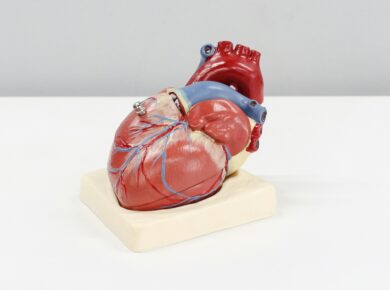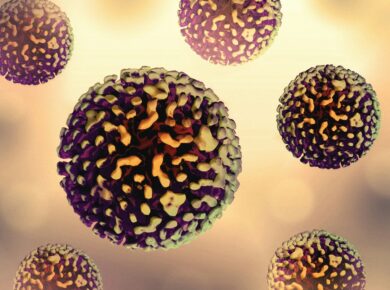Nutrition is the process of eating a balanced diet that provides the nutrients the body needs to stay healthy and keep fit. It is also the study of food and how it works. It includes carbohydrates, fats, proteins, fibres, vitamins, minerals and water.
Good nutrition means eating a variety of foods that give the nutrients needed to maintain good health, supply energy, and sustain wellness. Good nutrition is essential at every age, but highly essential for children to stay healthy and strong.
Therefore, they require a good knowledge of healthy eating habits that will sustain them now and throughout life. This month, we shall discuss the theme “Children and Good Nutrition”.
It is broken down into four topics for each week: what the Bible teaches about nutrition; nutrients needed in small quantities and their sources; nutrients needed in large quantities and their source; and how to maintain good nutrition.
Meaning of Nutrition
Though food is a gift from God, the subject of nutrition is not directly mentioned in the Bible. This is to say that the Bible does not talk about the balance of fat, protein, and carbohydrate a person needs; neither does the Bible mention the benefits of eating whole foods or processed foods. However, from biblical principles, we can deduce that it is beneficial and even morally right to emphasise a healthy diet.
Whole, raw, and unprocessed foods contain high nutrition because they are all part of God’s creation. Therefore, good nutrition can keep us healthy and fit for service to the Lord. The earth has been created to produce foods that are full of vitamins, minerals, and amino acids needed by the body for survival and good health.
Importance of Good Nutrition
Good nutrition is essential for children because:
- It helps to maintain a healthy weight.
- It improves the ability to recover from illness or injury.
- It increases energy levels and protects from diseases like depression, obesity, heart problems, and abnormal growth.
- It prevents malnutrition.
- It increases mental alertness.
- It enhances the proper functioning of the brain.
Cultivating Good Eating Habits
Children need to cultivate good eating habits, such as:
- Eating a balanced diet rather than eating junk food. This can be done by following your parents’ choices of the right quantities of all classes of food to ensure adequate intake of a balanced diet.
- Eating slowly and eating meals together as a family as often as possible.
- Drinking a lot of water before and after eating.
- Avoid watching TV while eating.
- Avoid eating in between meals.
- Avoid talking or singing while eating.
Micronutrients and their Services
Although the body only needs small amounts of these nutrients, a deficiency can cause ill health. The best way to get enough vitamins and minerals for healthy growth and development is to consume a wide variety of fresh foods, including whole grain bread and cereal, vegetables and fruits, meat, fish poultry, fish, poultry, eggs, nuts, legumes, and dairy products such as milk. Micronutrient deficiency can be caused by poverty, lack of access to a variety of foods, lack of knowledge of optimal dietary practices, and high incidence of infectious diseases.
Importance of Micronutrients
Vitamins and minerals boost the immune system, support normal growth and development that help cells and organs function well in children, proper vision, brain development, blood clotting, bone health, and fluid balance, as well as preventing and fighting diseases. The micronutrient content of cash food is different.
An adequate intake of all micronutrients is necessary for good health, as each vitamin and mineral has a specific role in the body. Approximately, half of all children between ages six months and five years are deficient in at least one micronutrient, making them prone to growth retardation and infection, such as persistent diarrhoea, vomiting, and anaemia (lack of enough red blood cells).
Many preschool children are known to have clinical and subclinical Vitamin A deficiency, which can cause poor physical and mental development, blindness, and low productivity in potential.
Categories of Micronutrients
There are four categories of micronutrients, namely: water-soluble vitamins, fat-soluble vitamins, macro-minerals, and trace minerals. Water-soluble vitamins can dissolve in water; they are difficult to store in the body, as they get flushed out in urine when consumed in large quantities.
Fat-soluble vitamins are absorbed along with fats in the diet and are stored in the liver and fatty tissues. Macro-minerals are minerals required in the diet in relatively large amounts. Trace minerals are essential minerals that the body must get from food in small amounts, which are crucial to our health and development.
Vitamins A, D, E, K, and C play important roles in the proper functioning of the immune system, proper bone development, proper vision, and protection of cells from damage.
Carbohydrates: Carbohydrate is the main source of energy for the body. They should make up most of the children’s diet. It is usually derived from food such as bread1.yam.nice, oats.Potatoes, corn, yoghurt, fruits, sugar and honey.
Protein: Protein is used in the body to build and repair muscle and tissue. It is very important and obtainable from meat(such as beef, chicken, mutton), fish, seafood, and eggs. Protein is also derived from dairy food(such as milk, yoghurt, and cheese), beans, nuts, and soya products.
Fat: Fat in the body is used as energy and storage for vitamins and protection, of also important for the production of hormones, and can be further classified as saturated and unsaturated.
Saturated fat should not be eaten in large quantities because they are dangerous to the heart. They are found in meat, butter, full-fat dairy products, peanut oil, palm oil, and our occasional foods such as chips, fried food, biscuits, and cakes.
Trimming fat off meat before cooking is a good way to reduce the consumption of saturated fats. Unsaturated fats are found more in fish, nuts, avocados, and vegetable oils. They are beneficial to the heart.
Water: Water carries nutrients to all cells in the body; it improves the health of the brain by increasing blood flow and oxygen to the brain. It allows the body to absorb and assimilate minerals, vitamins, amino acids and glucose.
Water helps to regulate body temperature and acts as a lubricant for joints and muscles. Water helps weight loss, aids digestion and detoxification, and makes one feel full longer without adding calories to the body.
Conclusion
In nutrition, in His generosity, he has made every kind of food available to us. He expects us to eat a healthy diet so that we can enjoy good health. This involves eating the right proportion of different classes of food, that is, carbohydrates, proteins, fats and oils, mineral salts, vitamins, and water. As children, to enjoy good health, you must do away with eating junk food.
Although micronutrients like vitamins and minerals are required in small quantities, they are crucial for the healthy growth and development of the human body. They also boost our immunity and fight against diseases in our bodies. Fruits and vegetables are good sources of micronutrients. Therefore, consider the importance of fruits and vegetables.
It is important to note that macronutrient requirements in the body do not mean consuming foods containing them in large quantities to avoid overfeeding. Rather, you should eat such food in a proportion that can give you adequate nutrients for energy. Growth and body repairs. God, in His graciousness, has made them available for us so that we can eat them and stay healthy. Read our effective article on










